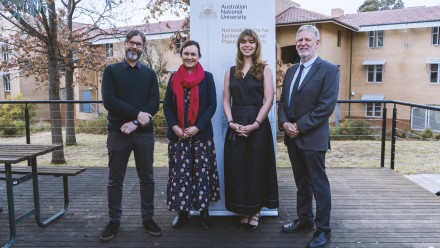Improving quality and sustainability in integrated PHC- Gestational Diabetes Mellitus Study
Gestational Diabetes Mellitus (GDM) is a common pregnancy complication with a prevalence of 10-13% depending on the criteria used and population studied. It is defined as any degree of carbohydrate intolerance that begins or is first recognised in pregnancy. GDM is the strongest single population predictor of type 2 diabetes mellitus (T2DM). It is estimated that 20-60% of women with GDM go on to developT2DM within five to ten years in the absence of any intervention. GDM and T2DM are important and escalating problems worldwide due to obesity and sedentary lifestyle. T2DM is presently the second highest contributor to the Australian burden of disease and poses an enormous economic burden projected to increase to almost A$7billion by 2033. Women with a history of GDM are also at greater risk of a recurrence of GDM, cardiovascular disease and metabolic syndrome. Poor health outcomes also extend to infants of mothers with GDM due to increased risk of obesity and abnormal glucose metabolism during childhood, adolescence and adulthood.
A general practitioner (GP) has a key role in providing postpartum and long-term preventative health care management. While appropriate care and preventative health approaches following childbirth provides an opportunity to improve health outcomes for mothers and infants, there are few comprehensive, evidence-based guidelines available. Women with prior GDM, and their infants, are even more likely to benefit from proactive care during this period and there are a number of guidelines that cater to this group, though again none are comprehensive in their own right (Appendix A). For example, Australian Diabetes in Pregnancy Society (ADIPS) Guidelines 2(current at the time of study) recommended an oral glucose tolerance test (OGTT) within 6- 8 weeks (now 6-12 weeks) of birth for women who had GDM. Although GDM usually resolves following birth, this test is important for identifying those women who have developed T2DM or have abnormal glucose tolerance so that early management can be commenced. The extent to which these guidelines are integrated into postpartum GP visits is not known but some studies suggest diabetes testing is sub optimal. Self-report surveys of Australian women indicate approximately half return for OGTTs but only a quarter in the recommended time period. Several international studies have also reported suboptimal screening rates and barriers to optimal care.
In the Australian context beyond the timing of testing regimes, recommendations regarding lifestyle interventions to prevent T2DM progression are absent in the current Australian Diabetes in Pregnancy (ADIPS) guidelines. However, the Diabetes Australia/Royal Australian College of General Practitioners (RACGP) Diabetes Management in General Practice and The guidelines for preventive activities in general practice (the ‘red book’) outline diabetes management and dietary advice for diagnosed cases of T2DM in general practice and for diabetes prevention. During a pregnancy complicated by GDM there is a major focus on tightly controlled blood glucose levels. By contrast, diabetes prevention diets have a greater focus on weight reduction and dietary quality. Awareness of the difference in approach may be limited amongst women who have had GDM and their GPs and is not clearly explained in these guidelines.
Australian and international guidelines also highlight the importance of breastfeeding, lifestyle modification, contraception and risk counselling to improve health outcomes for these women and their infants.
Comprehensive postpartum care for women with prior GDM (weight management/ lifestyle counselling, support for breastfeeding, contraception and preconception counselling, hypertension/macro vascular assessment, risk counselling and early referral regarding prevention interventions and drug treatment) is strongly promoted in the academic medical literature. However, there is currently a gap in knowledge regarding the extent to which preventative health practices are consistently integrated into postpartum GP visits in Queensland and what informs and aids the follow up care provided by GPs.
Partnerships
- Shelley Wilkinson, Mater Health Services, Brisbane, Australia
- Susan Upham, B. Soc. Wk., Grad Dip Health Promotion, GCIPH. Research Associate, University of Queensland, Brisbane, Australia
- Dr Tina Janamian, The University of Queensland, Brisbane, Australia
- Caroline Nicholson, MBA, GAICD, Grad Dip Physiotherapy. PhD Candidate, University of QueenslandMater Health Services, Brisbane, Australia
- Prof Claire L. Jackson, The University of Queensland, Brisbane, Australia







